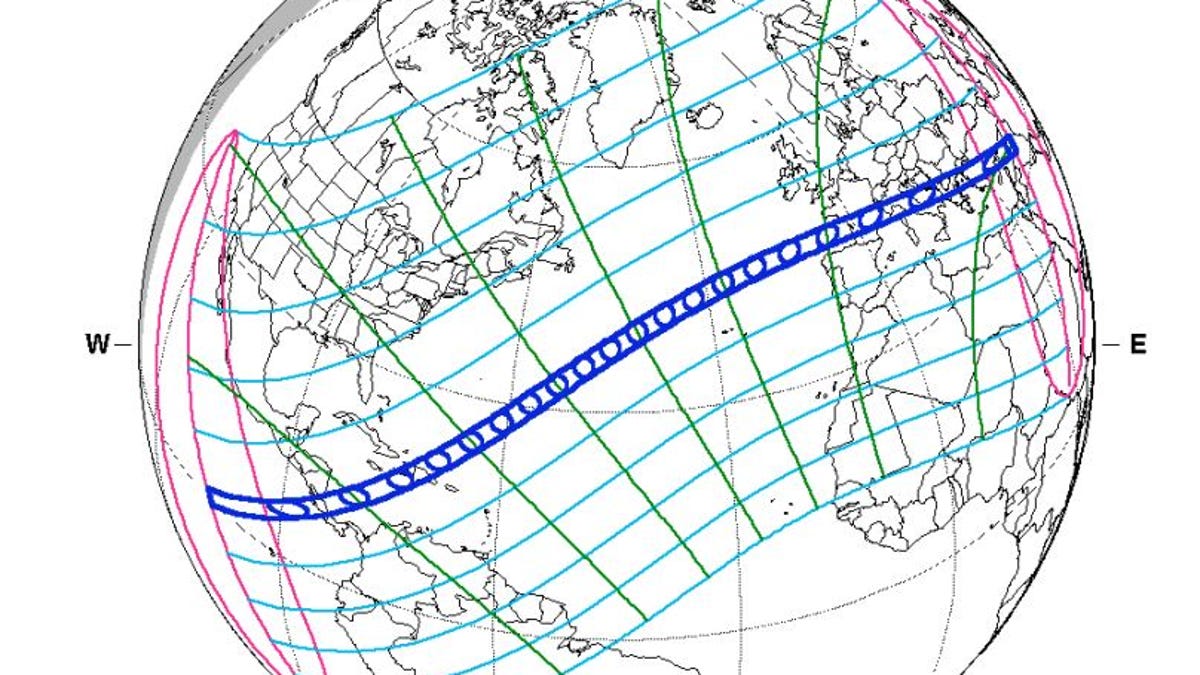A rare event that stopped an ancient war comes to the US soon
When a total solar eclipse surprised soldiers in ancient times, it brought an end to years of war. Now the same rare experience is coming to the US.

The viewing path of the total eclipse of May 28, 585 B.C.
Over 2,600 years ago this Sunday, on May 28, 585 B.C., the sight of a total solar eclipse is said to have suddenly stopped a battle between the Medes and the Lydians in what is now Turkey. This year the anniversary comes as Americans prepare for a once-in-a-lifetime opportunity to watch as the same phenomenon roll across the skies of the contiguous United States on August 21.
During the course of the last few millennia, humanity has learned enough about the universe to understand the temporary blotting out of the sun is caused by celestial geometry rather than an omen sent from the gods.
The ancient interpretation was sure fortunate for those soldiers fighting in what's come to be known as "The Battle of the Eclipse." When the eclipse passed over the battlefield, the warring kings took it as a sign from the gods that they should knock it off. The fighting ceased without a decisive victory for either side, ending 15 years of war just like that.
Ancient Greek historians say the eclipse was actually the first such event to be predicted in advance, in this case by the philosopher Thales.
The total solar eclipse that will be seen from the lower 48 states this August should be even more impressive than the one that inspired ancient kings to call for a truce. The peak of the eclipse of 585 B.C. was probably seen by nobody, as it happened over the Atlantic Ocean. For the best and longest view of this year's eclipse, you'll want to head to the vicinity of Hopkinsville, Kentucky, where the sun will seem to disappear from the sky for a full 2 minutes and 40 seconds.
So far as we know, no battles are set to take place in Kentucky this August, except perhaps the battle for space, refreshments and rooms. Hopkinsville and the surrounding area have been preparing for the eclipse for years already, including a San Diego Comic Con-style "Eclipse Con" set for the days leading up to the eclipse.
Perhaps the best way to experience a total solar eclipse in the 21st century is to meet all your frenemies in Kentucky and hug it out as the sun goes for a few brief minutes. What do you think, Congress?
Technically Literate: Original works of short fiction with unique perspectives on tech, exclusively on CNET.
Crowd Control: A crowdsourced science fiction novel written by CNET readers.

